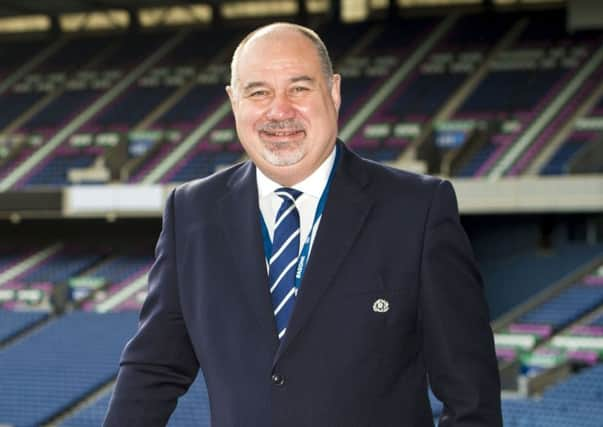Iain Morrison: SRU’s KO for Six Nations TV deal proves costly


Wind the clock back a few years to 2016 and Royal Bank of Scotland was paying a healthy £10.75 million per annum to sponsor the Six Nations. It was a long, strong relationship stretching back to 2003, even if the players didn’t always appreciate coming up like William Wallace after getting their head dunked in the sponsor’s blue on-pitch paint.
RBS was due to negotiate the deal and, according to the Irish Independent, the (publicly owned) bank offered to up the ante to an even healthier £13.75m per annum. The then chief executive of the Six Nations, John Feehan – the two have since parted ways – reportedly urged the Six Nations council to grab it pronto but two dissenting voices prevented the unions from ripping RBS’s arm from its socket.
Advertisement
Hide AdAdvertisement
Hide AdAccording to the Irish Indy, the Welsh and Scottish representatives insisted that RBS be squeezed for more cash. Scottish rugby’s chief executive Mark Dodson, pictured, sits on the Six Nations council.
Feehan was instructed to get an independent valuation of the true worth of the Six Nations and the number-crunchers returned with a range of figures, with the £13.75m on offer somewhere near the top end of that range. Still Feehan was sent back to squeeze RBS some more and it seemed like the bank tired of this nonsense, walking away after signing on – under the guise of NatWest – for a lowly one-year deal that covered 2017.
The net result of this is that Guinness is the new title sponsor and yes, I will remember to drink responsibly. (Where were you on Hogmanay?) The deal is reportedly stepped, rising over the six-year period but overall offering just £8.5m per annum, a full £5m less than RBS was offering.
Scottish Rugby’s boss doesn’t have a great reputation right now following the unappetising legal fight with Keith Russell, the SRU’s former director of domestic rugby, who won an unfair dismissal claim against the governing body last year.
The one thing Dodson had in his favour was a vague suspicion that he knew what he was doing around the business table. The Union’s debt has fallen while on the field the team has risen in the rankings.
When asked about the allegations, Murrayfield released the following statement: “Scottish Rugby, along with other Unions, supported a full international review of the Six Nations title sponsorship. This process ultimately led to Guinness taking on sponsorship of the tournament in an excellent, multi-year deal.” Which, as you may already have noticed, does not rebut the central charge that Scottish Rugby took a central role in turning down RBS’s bumper offer.
So would it be overly cynical of us to wonder if the extra autumn Test – played against Wales outside of the officially sanctioned international window – came about, partly at least, as a direct result of those RBS negotiations going sour? Scottish Rugby denies it.
But six degrees of separation suddenly seem like a luxury when you can draw a direct line from the decision to reject the £13.75m deal on offer to Scotland’s players getting flogged last November by playing four Test matches on four consecutive weekends.